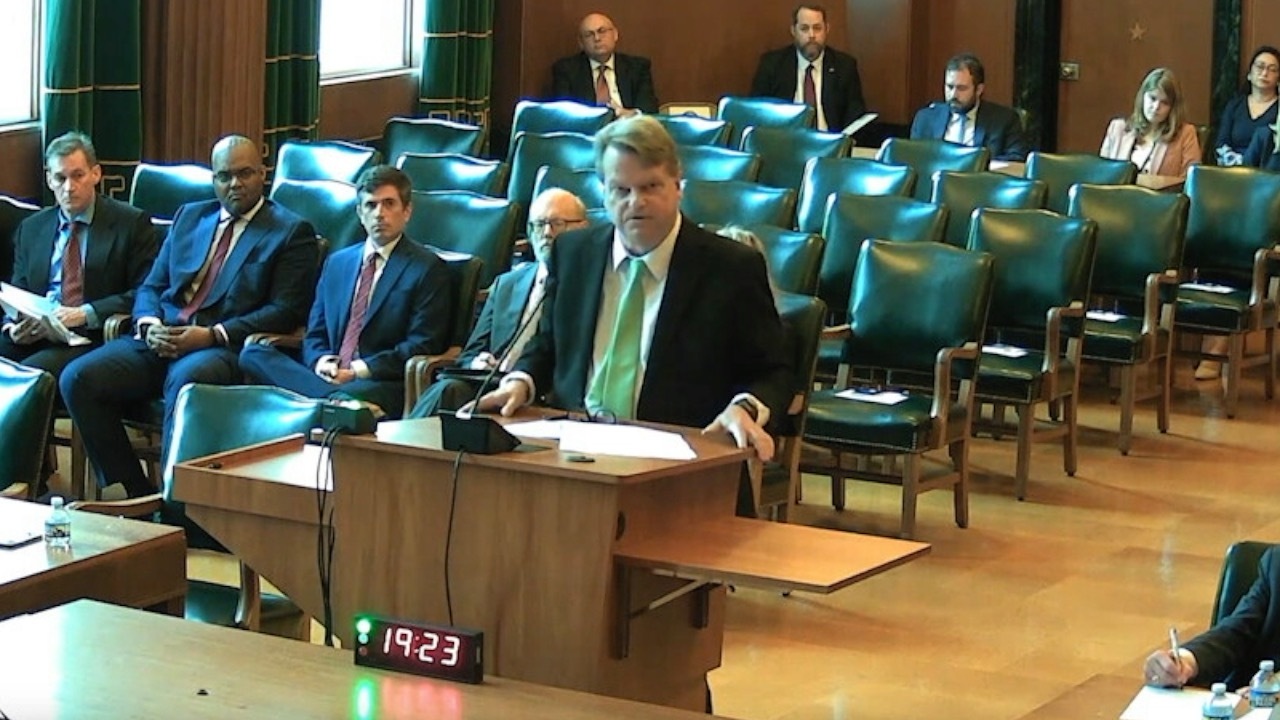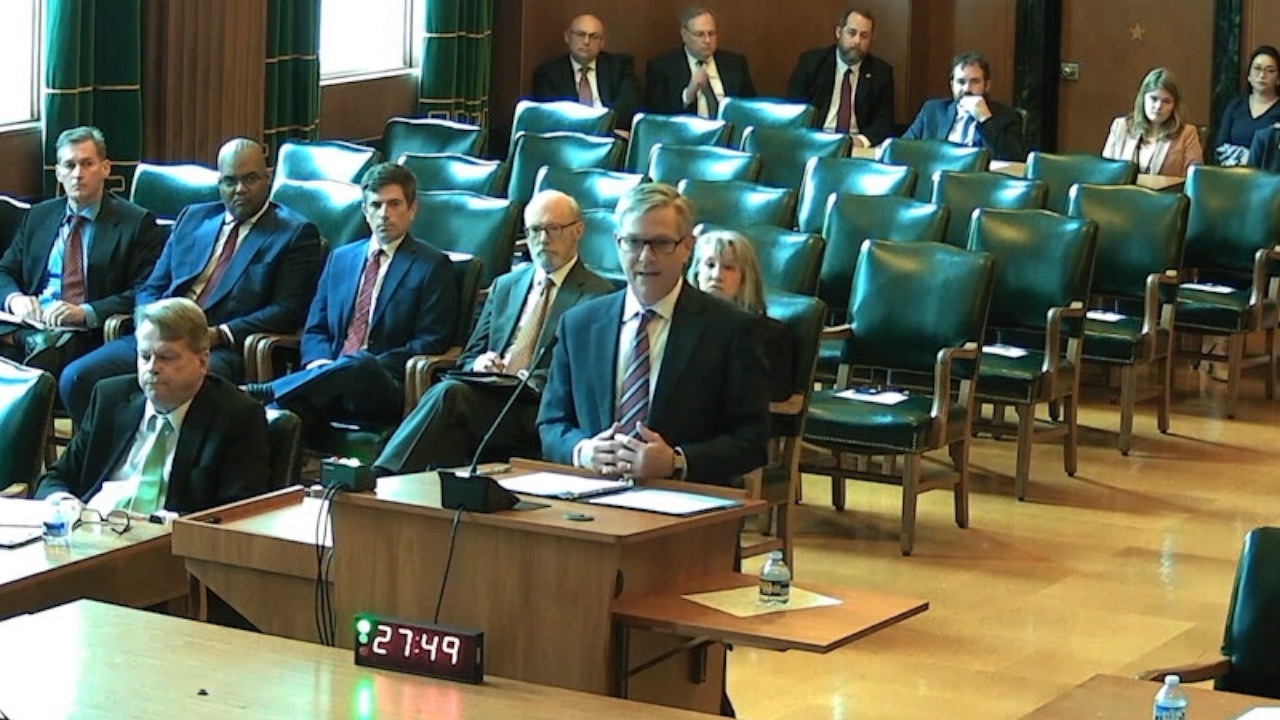- The North Carolina Supreme Court heard oral arguments Tuesday in a dispute between the state Department of Revenue and a business claiming a "mill machinery" tax exemption.
- The Business Court ruled that the business, FSC II, qualified for the exemption for machinery the company used to make asphalt. FSC II sold as much as 20% of the asphalt to third parties.
- The Revenue Department disputes that ruling. The department argues that FSC II could take an exemption only if it engaged primarily in manufacturing. FSC II is primarily a contractor, according to the department.
The North Carolina Supreme Court will decide in the months ahead whether a business qualified for a tax exemption from 2012 to 2014 for machinery it purchased to make asphalt. The business and the state Department of Revenue are locked in a dispute over the issue.
The parties spent nearly an hour Tuesday morning haggling over the exemption during oral arguments before the high court.
The Revenue Department argued that FSC II was a contractor, not a manufacturer. Only a manufacturer qualified for a “mill machinery exemption” on sales tax for its equipment. FSC II used most of the asphalt it produced for its own contracting work. The business sold less than 20% of the asphalt to third parties.
The state Business Court ruled that FSC II qualified for the exemption.
“The decision below would potentially gut the sales tax, and it would thwart the legislative purpose behind this exemption,” argued Jonathan Wike, the state special deputy attorney general representing the Revenue Department. “It would make for a huge hole in the sales tax. Anyone who purchases an item that can be used to make something new could then turn around and claim a lower rate.”

Lee Hogewood, FSC II’s lawyer, argued that the company clearly qualified for the exemption. “FSC II is a manufacturer because it uses knowledge and skill to turn raw materials into hot-mix asphalt,” Hogewood explained. “It purchased equipment, which it incorporated into a manufacturing plant that when operated with skill and specialized knowledge turns raw materials into an entirely new thing. That is manufacturing.”
Hogewood labeled the law creating the tax exemption “unambiguous.” “The Department of Revenue proposes to amend the statute,” he said. “They wish to add words and concepts that cannot be found in it.”

“What I’m grappling with is do we have a separation of powers issue?” asked Justice Tamara Barringer.
Justice Trey Allen questioned the Revenue Department’s argument that the business needed to be engaged “primarily” in manufacturing to qualify for the exemption.
“It seems like something of a stretch to say that we’ve got to read ‘primarily’ into this when we see in one of the provisions in the atatute a term like ‘principally engaged,’” Allen said. “It’s so clear the General Assembly could have used similar language when talking about what qualifies as a manufacturer.”
Allen asked lawyers on both sides whether the court could set a standard saying that a business would have to sell a “substantial” amount of what it produces to qualify as a manufacturer.
“The statute says manufacturing,” Hogewood responded. “It doesn’t impose any sort of requirement that any portion of the produced material be sold — substantial, incidental, incremental.”
Justice Richard Dietz distinguished tax law from other forms of law that require interpretation of legislators’ intent. “There is no intent to what the legislature’s doing in the tax code except what’s right in there — in the words,” he said. “What every legislator understands is that people comb through that thing and look for the loopholes. That’s just how it works.”
“If they find one and the Revenue Department says, ‘Wow, they’re doing 1% manufacturing and 99% contracting, but they’re getting the exemption here,’ they alert the legislature, and they close the loophole,” Dietz added. “They define manufacturing. That way the policy decision is being made by the legislative branch.”
Justice Anita Earls defended the Revenue Department’s approach of consulting court precedents to determine its interpretation of the tax exemption.
“Reasoning from prior cases involving slightly different facts and slightly different statutes … that’s sort of the enterprise of doing the law,” Earls said.
Justice Phil Berger Jr. asked about the Revenue Department’s use of the state’s formal rulemaking process.
“That’s the question, right? Should courts be involved in the business of regulation, or should it be the regulatory agency?” Berger asked. “The legislature passes a statute and basically sets the parameters within which a regulatory agency can operate. You can attempt to define terms, and the public has input. Why is that the wrong approach here?”
The North Carolina Chamber Legal Institute filed a friend-of-the-court brief in the case in August 2023. The Chamber’s legal group backed FSC II.
The Chamber brief asked state Supreme Court justices to prevent the Revenue Department “from enforcing an unpromulgated rule against a taxpayer in direct violation of Section 150B-18 of the North Carolina Administrative Procedure Act.”
“Permitting a state agency to enforce such a secret rule would threaten North Carolina’s business climate, undermine the political accountability of state agencies and erode the public’s confidence that their government will treat them fairly,” wrote attorney William Nelson.
The dispute reaches back to tax years from 2012 to 2014. At that time, state law allowed a manufacturing industry or plant to pay a privilege tax on mill machinery, parts, or accessories stored, used, or consumed in North Carolina. That tax was lower than the general sales tax. The General Assembly replaced the privilege tax in 2018 with a tax exemption.
FSC II worked primarily in public infrastructure and commercial sitework construction as a contractor, according to the Revenue Department’s brief in the case. The company bought equipment to make the asphalt product for its own paving projects. FSC also sold 15% to 20% of its hot mix asphalt to other companies.
The Revenue Department rejected FSC’s attempt to claim the mill machinery exemption. The company sued and secured a favorable ruling from the state Business Court.
Now Revenue officials seek a reversal of that decision from the state Supreme Court.
“One fundamental rule-of-law principle requires that binding norms be formulated openly and in advance,” Nelson wrote in support of FSC. “When rules are ‘fixed and announced beforehand,’ citizens can ‘foresee with fair certainty how the [government] will use its coercive powers in given circumstances’ and ‘plan [their] affairs on the basis of this knowledge.’”
“The importance of this principle to economic growth is obvious,” Nelson added. “Players need to know the rules of the game before they roll the dice. When government agencies can exact penalties for the transgression of secret rules, even the most daring entrepreneurs will be reluctant to commit their capital into the future.”
“Making rules openly and in advance also ensures a measure of political accountability from agencies not subject to direct democratic control,” the Chamber’s brief continued.
“[A] taxpayer must satisfy two requirements to come within the mill machinery exemption. The taxpayer must be a ‘manufacturing industry or plant,’ and the items purchased must be ‘mill machinery.’ The Department does not contest that the items FSC purchased are ‘mill machinery’ but denies that FSC is a ‘manufacturing industry or plant,’” Nelson explained.
“The statutes do not define ‘manufacturing industry or plant,’ but this Court has held that a manufacturer is a person who converts raw materials into new products through skill and labor,” the Chamber brief added.
“The Department does not dispute that FSC created a new product out of raw materials using skill and labor. That would seem to make FSC a manufacturer and bring this case to an end,” Nelson wrote. “However, the Department insists that to claim the exemption FSC must satisfy a third requirement not found in the statute: its primary purpose must be selling its manufactured products to third parties.”
“The Record in this case shows that the Department developed this primary purpose requirement internally,” he added. “The APA expressly forbids the enforcement of such an unpromulgated rule.”